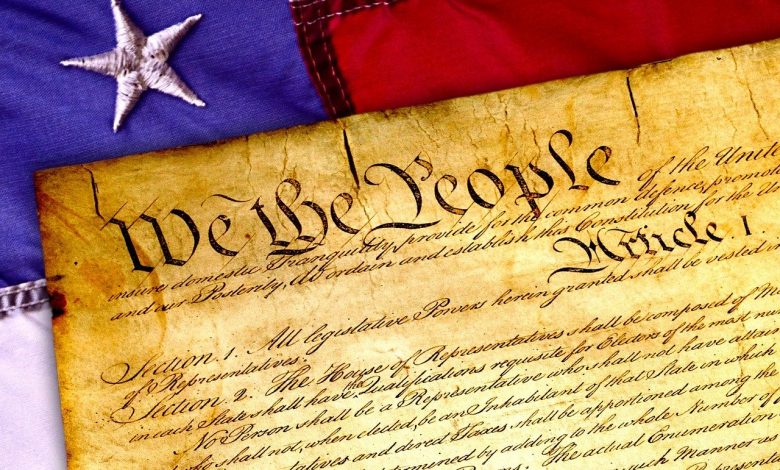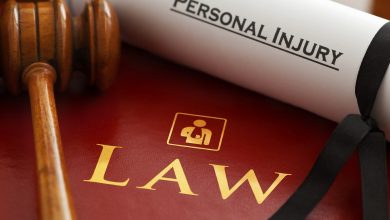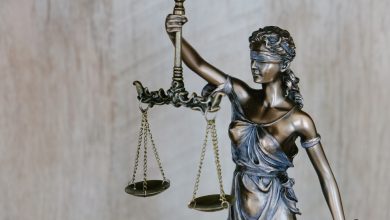Overview of Your Fourth Amendment Rights

Your Fourth Amendment rights are important ones, as they protect your right to privacy and from law enforcement searching and taking your property whenever they deem fit. Its history is a long one, as this was in the Bill of Rights and was something early colonists cared a great deal about following the restrictive ruling they faced with the British. This amendment requires a warrant with good reason for an officer to search or arrest you, as well as take your property – whether as evidence or because it’s illegal. However, there are a few exceptions to the rule when it’s in the interest of the public. If your Fourth Amendment rights are violated, there are some ways to allow your rights to be restored in some ways, or at least made up for. Having a full knowledge of your Fourth Amendment rights can allow you to ensure that your rights are not violated, and that you know how far the police can go in these situations.
History of the Fourth Amendment
The history of this amendment stretches as far back as before America had even declared its independence. In fact, the conflict that inspired it is also one that contributed greatly to the Revolutionary War itself. The British imposed something called the Writs of Assistance on the colonists, which, instead of really affording them any rights, more infringed on them by allowing searches to be carried out in very broad terms. Infuriated by the unfair searching of their property, they protested greatly, and eventually they were phased out. After establishing their independence and the Constitution, in 1791, America added the Fourth Amendment.
It required very specific circumstances revolving around when a search could take place, as well as any seizure of property or arrests made. Although times have changed, the law still stays pretty close to its roots. The biggest difference has been the expansion of what is considered property, as the modern era has seen the introduction of vehicles, computers, cell phones, and other forms.

What Does it Say?
The Fourth Amendment protects:
The right of the people to be secure in their persons, houses, papers, and effects, against unreasonable searches and seizures, shall not be violated, and no warrants shall issue, but upon probable cause, supported by oath or affirmation, and particularly describing the place to be searched, and the persons or things to be seized.
To begin with, it defines what properties it protects. Today, this typically includes yourself and things on your person, your home, car, business, computer, or wireless device. A lot of these, however, have been defined by court cases since the implementation of this amendment.
These properties are all protected from unreasonable searches and seizures. What makes a search unreasonable is if it is done without a warrant or probable cause, which we’ll discuss later.
Finally, it outlines what is required to make a warrant legal and what it needs to include, which includes an oath and specific instructions on what can be searched, where they can go, and who or what they’re looking for, which we’ll also break down later.
Warrants
So to be arrested or have your property searched, the law enforcement officer must either have a warrant or probable cause. A warrant is an official document signed by a judge or some other judicial or government official that orders law enforcement to carry out a search, arrest someone, or bring them to the court. They can be separated into three different types:
Arrest warrant: This gives police the right to arrest you if you’re identified, although there may be some stipulations applied, such as when and where the arrest can occur. These are typically situations in which you aren’t caught in the act – this probably required some investigating and proof that you committed a crime. You may not even know that a warrant is out for your arrest, but obviously committing even a small crime is a quick way to get yourself brought in on a warrant.
Search warrant: A search warrant allows law enforcement to search your property, which is typically distinctly defined in the warrant itself on where they can search. Again, this is going to happen when the law has reason to suspect that you may be in possession of something illegal or breaking the law in some way.
Bench warrant: This type of warrant just gives police the right to bring you in front of the court, typically to answer to missing a court date or jury duty, not paying a fine or child support, or violating probation or bail somehow.
How is a Warrant Obtained?
One of the aspects the Fourth Amendment requires when putting out warrants is an oath, which typically comes in the form of law enforcement or a witness stating under oath that they have reasonable suspicion or actual knowledge that a crime occurred by that specific person. This is usually done with an affidavit, which is basically just a signed document under the threat of perjury. There does have to be pretty solid evidence for this to be passed off by a judge after this. A bench warrant, however, will come directly from a judge, calling for them to come before them.
The judge must be impartial and fair to the situation, so as to further respect your rights against unlawful searches and seizure. Furthermore, there will often be guidelines in the warrant defining exactly which properties can be searched and during what hours of the day they can do so.

Probable Cause
Probable cause is the biggest exception to the Fourth Amendment, although the search warrant has a few more. This occurs in the moment, frequently during a traffic stop or searching your person, when the officer has real reason to believe that there may be something illegal in your possession. In the case of an arrest, this can occur when there’s good reason to believe that you committed a crime, usually because they watched you do it, or there were enough witnesses around to verify that you did it. However, these reasons do have to stand up in court, or the evidence obtained or arrest will be unlawful.
This was outlined in a 1936 court case, Brinegar v. United States. Brinegar was charged for illegally transporting alcohol in his vehicle, which was discovered when he was pulled over and searched. He argued that the search required a warrant, but there were quite a few reasons why the federal agent decided he needed to be searched at the time. He knew that Brinegar had been arrested for the same crime just months before, had seen him loading his car with alcohol in the legal state of Missouri twice, and knew of the defendant’s reputation for committing this crime. The car appeared to be heavily loaded not far from the Missouri line when pulled over. The Supreme Court held that there was no warrant needed because, “Probable cause exists where the facts and circumstances within the officers’ knowledge, and of which they have reasonably trustworthy information, are sufficient in themselves to warrant a belief by a man of reasonable caution that a crime is being committed.” This defining moment of probable cause is what allows officers to make searches and arrests when their knowledge is enough to reasonably assume that there is a crime occuring.
Other Exceptions
Sometimes there are cases where it is obvious a crime is happening or something illegal in possession, which needs to be stopped or seized, and waiting to get a warrant would either allow them enough time to dispose of the evidence, or put the officer or others in danger. That being said, there are a few circumstances in which law enforcement can bypass a warrant to go onto your property. These include:
Emergency exception: This is when law enforcement can see or hear an emergency taking place, and their immediate assistance is required. For example, if the police responded to a domestic violence call and heard screaming inside the apartment, they can make an exception and enter in order to keep everyone safe. This would also be a valid probable cause.
Automobile exception: This exception is for those times when a suspect would have enough time to dispose of their illegal possessions in the amount of time it would take to get a warrant, such as in the case of an automobile, which can drive away.
Incidental searches: These are required to happen immediately after an arrest takes place, and only if it’s in obvious connection with the crime and evidence would be disrupted in their time obtaining a warrant.
Plain view: This one’s easy. If an officer can obviously see it, he can take it and search the rest of the property.
School property: When you’re on school property, you still have your full Fourth Amendment rights; however, it’s possible that the reason for probable cause may be a little more lax, as there is a need to protect the safety of children in the school.

Electronic and Wire Surveillance
Modern times have called for a need for this amendment to extend into technological advancements, and your internet and other electronic usage also requires a warrant in order to be searched. These can be a bit more extreme issues, however, so if there is a national security threat or evidence of organized crime, there is no warrant required. Some ways the government does this kind of surveillance include:
- Wiretapping
- Bugging
- Videotaping
- Geolocation tracking, such as via RFID, GPS, or cell-site data
- Data mining
- Social media mapping
- Monitoring of data and traffic on the Internet
The case that defined the need for a warrant in these cases was Katz v. United States, all the way back in 1967. Officers believed that Katz was using a telephone booth to transmit gambling information, so they placed an eavesdropping device outside of the booth. He was found guilty, but appealed on the fact that there was no warrant, and therefore, the evidence obtained was illegal. The Supreme Court agreed, deciding that he did indeed need a warrant, and his right were violated. This case also brought the term ‘reasonable suspicion’ from the dissenting member.
Another important case regarding where warrants apply in the world of technology is Carpenter v. United States in 2017. After four robbers were arrested, one confessed and provided the police with the name of the other robbers. Judges were able to justify providing them with phone records of the three numbers using The Stored Communication Act. This act allows for this information when “specific and articulable facts show[] that there are reasonable grounds to believe that the contents of a wire or electronic communication, or the records or other information sought, are relevant and material to an ongoing criminal investigation.” They then used that information to track their location at the time of the robbery, placing them at the crime. This evidence led to the conviction of Timothy Carpenter, who argued that this was a violation of his Fourth Amendment rights because they lacked a search warrant. After being taken to the Supreme Court, they decided that it was in fact a violation of his rights, as they believed that the technique violated his basic right of privacy – most people aren’t all that aware that their data is being collected in such a way – and, therefore, required a warrant.
What if My Fourth Amendment Rights are Violated?
This can mean a couple of things. For one, if it’s in the case of a search and seizure, all of the evidence found against you in this search may be ruled unconstitutional, and therefore, unusable in court. This is called the exclusionary rule. However, there are a couple cases where this doesn’t apply. One is if the police believed the warrant to be valid, but it wasn’t. They can also rule it constitutional to use if they later find the evidence in a second, legal search. However, this exclusionary rule is pretty much the only remedy to having this right violated, unless no police officer would reasonably believe the reason for probable cause in you search and seizure, as officers have qualified immunity. But if you believe that the search was objectively unreasonable, rather than any good intentions of a police officer trying to enforce the law with the information he has, you may have grounds to sue the officer.
In the case of an arrest without a warrant or probable cause, your arrest could be considered illegal and any evidence or confessions obtained, therefore, are invalid, along with the arrest itself.
As a lot of interpretation of the law has become more based upon Supreme Court decisions since then, there is also a case that defined the exclusionary rule. In Weeks v. the United States, the police entered Fremont Weeks’ home, searched his home, and seized evidence that they then used to convict him of transporting lottery tickets through mail – papers which they refused to return to Weeks. However, they had no warrant and no justification for probable cause. The Supreme Court decided that the evidence used was unconstitutional, and that they had violated Weeks’ rights. In Mapp v. Ohio, this federal idea of the exclusionary rule was also applied to the states.
A case that then slightly tightened the belt on the exclusionary rule was the 1985 case New Jersey v. T.L.O. The defendant was a student in high school who was suspected to have cigarettes on her person. They searched her and not only found cigarettes, but also a bit of marijuana and the names of everyone who owed her money. This lead to her conviction of possession of marijuana, which she then appealed, as she believed under the exclusionary rule that it was her right to have the evidence dismissed. The Superior Court of New Jersey, Appellate Division agreed with her, and decided to suppress the evidence. However, the New Jersey Supreme Court finally decided that the search was reasonable considering the circumstances.

While the Fourth Amendment affords a lot of rights, it can’t do much in a case where a crime is obviously being committing. However, you do have the right to your privacy, which requires a warrant when having any of your property or yourself searched. Additionally, there must be a warrant or probable cause for you to be arrested, as well as in the extension of digital surveillance. If your rights are violated, all evidence found during the illegal act is unusable in the case against you. Knowing your rights is half of the process in ensuring that your rights are always protected, as knowing what officers can and cannot do in the moment can be essential.



